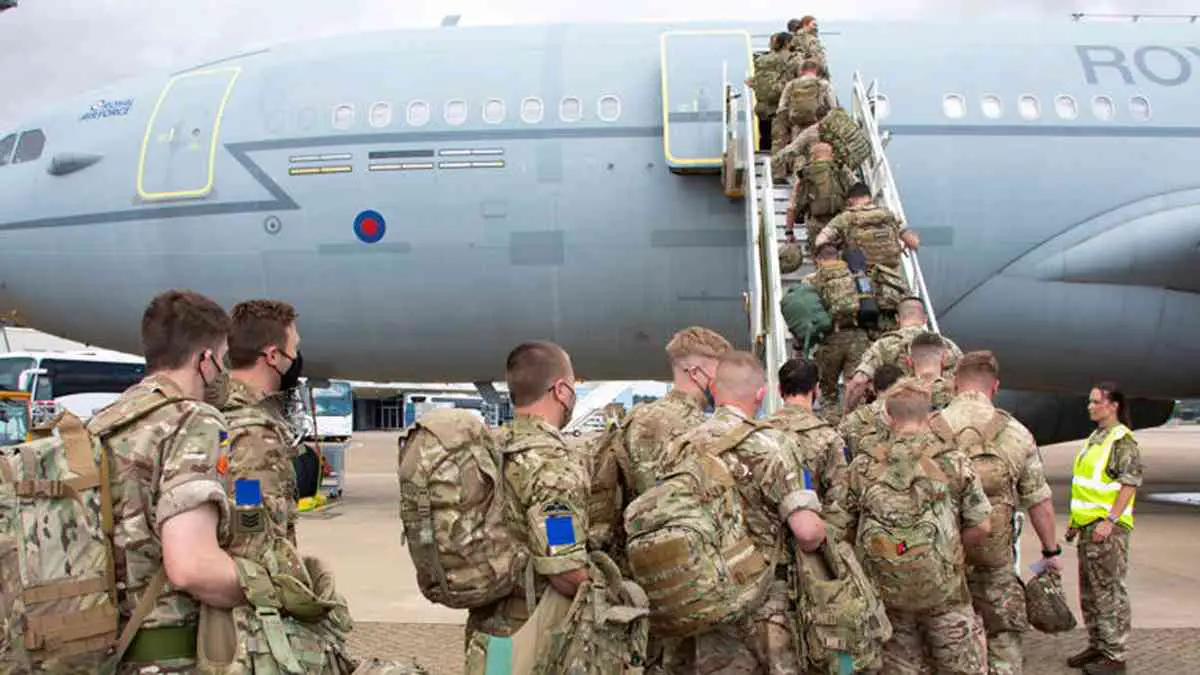In a world where geopolitical tensions can strengthen rapidly, discussions about army preparedness are always at the desk. Recently, the head of the British Army, General Patrick Saunders, raised eyebrows by suggesting the need for a “citizen army” to defend in opposition to capacity threats like Russia. This announcement ignited debates and speculations about conscription inside the United Kingdom. However, the U.K. government speedily replied, stating that it had no plans to introduce conscription.
The Controversial Remark
General Patrick Saunders, Chief of the General Staff of the British Army, delivered a speech at the International Armored Vehicles conference in London, in which he mentioned the need for a “whole-of-kingdom” technique to put together for ability land wars. He praised European countries toward Russia for their foresight in laying the principles for countrywide mobilization. Saunders also emphasized the importance of growing the dimensions of the British Army, aiming for a force of 120,000 within the subsequent three years.
However, what garnered the most interest changed in his announcement: “Ukraine brutally illustrates that normal armies begin wars; citizen armies win them.” This observation sparked discussions about the possibility of conscription being reintroduced in the United Kingdom.
Historical Perspective on Conscription in Britain
To apprehend the significance of General Saunders’ declaration and the authorities’ reaction, let’s take an experience via history to discover conscription in Britain.
During World War I, Britain resorted to conscription to strengthen its armed forces. The Military Service Act of 1916 forced eligible men to serve in the Navy. This marked a huge departure from the conventional all-volunteer device.
Conscription continued for the duration of and after World War II. The National Service Act of 1947 extended conscription to peacetime, requiring young guys to serve inside the armed forces for 18 months. This practice persevered until 1960 when conscription became formally abolished.
An All-Volunteer Force
Since 1960, the British Army has predominantly depended on volunteers. The idea of an all-volunteer pressure has been a point of pleasure, and the United Kingdom has now not conscripted infantrymen for the maximum of its 364-year history.
The Government’s Stance
In reaction to General Saunders’ feedback, Prime Minister Rishi Sunak’s spokesperson, Max Blain, made the authorities’s function clear: “The British Navy has a proud culture of being a voluntary force. There are not any plans to exchange that.” Blain emphasized that “carrying out hypothetical wars” changed into unproductive.
Defense Secretary Grant Shapps, acknowledging the evolving global panorama, defined Britain as “transferring from a post-battle to pre-war international.” Despite this sobering evaluation, the government does now not intend to increase the size of the Army beyond its current level of approximately 74,000 full-time troops.
The authorities do plan to allocate extra resources to the military, increasing military spending from just over 2% of GDP to 2.5%. However, this remains appreciably lower than the Cold War generation stages.
The Debate Surrounding Conscription
The latest discussions surrounding conscription in Britain have ignited a passionate debate amongst residents, professionals, and policymakers. Let’s explore a number of important arguments on both aspects of this contentious issue.
Arguments in Favor of Conscription
Enhanced National Defense: Proponents argue that conscription can quickly bolster the kingdom’s protection capabilities at some point in instances of disaster, making sure an extra substantial and responsive army force.
Shared Responsibility: Conscription spreads the weight of army service across the entire population, selling a feeling of shared duty for national protection.
Skills and Training: A mandatory army career can offer precious competencies and schooling to younger people, offering them possibilities for private and expert development.
Arguments Against Conscription
Volunteer Tradition: Critics emphasize the importance of preserving the lengthy-standing way of life of an all-volunteer military pressure, highlighting the satisfaction associated with serving one’s country Voluntarily.
Cost and Efficiency: Some argue that conscription can be costly and much less efficient than an expert navy, as it can require sizeable schooling and resources for a wide variety of draftees.
Personal Freedom: Opponents assert that conscription infringes on character freedoms with the aid of compelling citizens to serve within the Navy against their will.
The topic of conscription is a complex and sensitive one, with sturdy arguments on each aspect. While General Patrick Saunders’ remarks about a “citizen army” may additionally have stirred controversy, the U.K. Government has made it clear that it currently has no plans to reintroduce conscription. Britain’s proud subculture of maintaining an all-volunteer military pressure remains intact, even in the face of evolving worldwide threats.
As the world keeps to trade, discussions about countrywide protection and navy preparedness will persist. It is crucial for governments to carefully not forget the results of conscription and weigh the blessings towards the values of personal freedom and volunteerism, which have long been loved inside the United Kingdom. The destiny of Britain’s defense approach will certainly be formed by means of these ongoing conversations, ensuring that the kingdom stays prepared to address emerging demanding situations while upholding its central ideas.






















+ There are no comments
Add yours